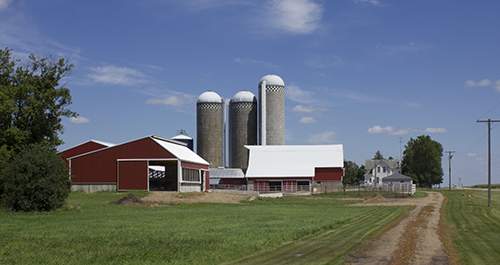
When I was 12, my family had an experience that significantly altered our operation. At 11 p.m. in the middle of wheat harvest, our hay barn caught fire. Because of the layout of our barns, the flames quickly spread from the hay barn to the adjacent loafing shed, and within a few minutes was threatening our milking parlor and home. My father and older brother jumped into action to try to free the cows while my mother phoned 911.
It is often not until the exact moment that an operation needs a crisis or emergency plan that producers think about the importance of formulating such a document. Crises come in all shapes and sizes whether it's a fire, animal welfare concern or food safety issue. Dairies face a wide range of challenges and should establish a plan for handling such occurrences.
This semester, I am enrolled in a class devoted to crisis management, and, at first, the idea of forming a management plan for any business seemed too intensive. It wasn't until we began breaking crisis management down into stages that the formation of a plan began to seem feasible. Crises can be divided into precrisis, crisis and postcrisis. For many businesses, thoughtful precrisis preparation can save them during a crisis event.
To form an effective crisis management plan, producers can follow the precrisis recommendations of Timothy Coombs, crisis communications specialist and professor at the University of Central Florida. He recommends six steps for precrisis management.
1. Diagnose vulnerabilities
2. Assess the type of crises
3. Develop a crisis management team
4. Select and train a spokesperson
5. Develop a crisis management plan
6. Review the crisis communication system
Producers looking to get a better handle on crisis management should start small by evaluating their operation for vulnerabilities and examining the likelihood and impact of a crisis related to those vulnerabilities. They can then organize a group of people who would have the skills and expertise to respond during a crisis and formulate a working crisis management plan for the farm.

The author was the 26th Hoard's Dairyman editorial intern. She is a senior at Kansas State University in Manhattan, Kan. At KSU, Maggie is double majoring in agricultural communications and journalism and animal sciences and industry. Seiler grew up on a 130-cow registered Holstein dairy in Valley Center, Kan., near Wichita.







